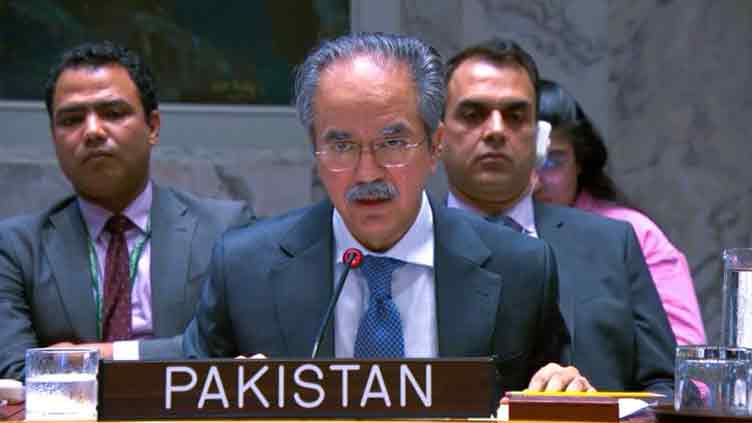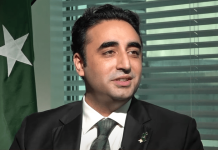DM Monitoring
NEW YORK: In a strong call for justice and international cooperation, Pakistan’s Permanent Representative to the United Nations, Ambassador Asim Iftikhar Ahmad, urged the UN Security Council to prioritize development and human rights as essential pillars for global peace during an open debate on “Poverty, Under-development and Conflict.”
Speaking at the debate convened by the Guyanese Presidency of the Security Council, Ambassador Ahmad stressed that poverty, inequality, and systemic injustices are not merely development challenges but core drivers of conflict around the world.
“Without development, peace cannot endure. Without peace, development cannot take root,” he said, citing former UN Secretary-General Kofi Annan to underscore the interconnectedness of peace, development, and human rights.
The ambassador warned that growing global insecurity, climate crises, and economic inequalities are disproportionately harming the Global South and undermining progress toward the Sustainable Development Goals (SDGs). He particularly emphasized that developing nations continue to suffer under “unjust global economic structures,” unsustainable debt, and exploitation of natural resources, often exacerbated by historical and ongoing imbalances in international systems.
In his address, Ambassador Ahmad outlined four key recommendations for the Security Council: Address Structural Injustices: He called for a principled, consistent application of international law, including resolving long-standing conflicts, ending foreign occupations, and upholding the right to self-determination.
Embed Development in Peacebuilding: Peace efforts, he argued, must move beyond military solutions to include preventive diplomacy and deeper cooperation between the Security Council, ECOSOC, the Peacebuilding Commission, and UN development actors.
Context-Specific Approaches: Emphasizing national leadership, he stated that countries emerging from conflict must be supported with coherent and sustained international engagement aligned with their development and prevention goals.
Strengthen Regional Partnerships: He advocated for institutional integration of regional bodies like the African Union, OIC, EU, and ASEAN in conflict prevention strategies, recognizing their frontline role in peace efforts.
Looking ahead to Pakistan’s upcoming presidency of the Security Council, Ambassador Ahmad expressed commitment to advancing these objectives, reinforcing the message that global peace cannot be sustained without tackling the structural roots of conflict.
“Prevention is the best cure. And development is the best means of conflict prevention,” he concluded, calling on the international community to muster the political will necessary to mobilize the estimated $4.2 trillion annually needed to meet the SDGs.
The open debate comes at a time of intensifying humanitarian crises and ongoing conflicts, highlighting a growing consensus among member states that peace and development must be pursued in tandem.






